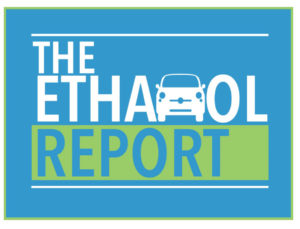 The Environmental Protection Agency on Friday (EPA) issued proposed volume requirements under the Renewable Fuel Standard program for calendar year 2020, leaving them basically unchanged and not reallocating gallons lost due to small refinery exemptions.
The Environmental Protection Agency on Friday (EPA) issued proposed volume requirements under the Renewable Fuel Standard program for calendar year 2020, leaving them basically unchanged and not reallocating gallons lost due to small refinery exemptions.
Renewable Fuels Association (RFA) president and CEO Geoff Cooper says the proposal “completely betrays President Trump’s commitment” to uphold the integrity of the RFS by neglecting to prospectively reallocate small refinery exemptions and blatantly ignoring a court order to restore improperly waived gallons.
EPA has proposed a total renewable fuel volume of 20.04 billion gallons, of which 5.04 billion gallons are advanced biofuel, including 540 million gallons of cellulosic biofuel. That leaves, on paper, a 15-billion-gallon requirement for conventional renewable fuels like corn ethanol, unchanged from 2019.
Most notably, EPA failed to prospectively account for any expected small refinery exemptions in the 2020 proposal, even though it is almost a foregone conclusion at this point that the Agency will continue to grant more exemptions.
Cooper discusses the shortcomings of the proposal in this interview: RFA CEO Geoff Cooper interview on EPA RVO proposal
American Coalition for Ethanol (ACE) CEO Brian Jennings says the proposal “fails to restore a 500-million-gallon shortfall the D.C. Circuit Court ordered EPA to handle following the Americans for Clean Energy et al v. EPA lawsuit, which recently resigned EPA Assistant Administrator for Air and Radiation William Wehrum told ACE members EPA intended to address in the 2020 proposed rule at our D.C. fly-in in April.”
The National Biodiesel Board (NBB) criticized the proposed rule for both the 2020 advanced biofuel standards, which is 0.12 billion gallons higher than 2019, and 2021 Biomass-based Diesel Volume, saying it undermines market growth for biodiesel and renewable diesel.
The agency’s proposed advanced biofuel volume of 5.04 billion gallons provides no additional market growth for biomass-based diesel. Similarly, the proposal to set the 2021 biomass-based diesel volume at 2.43 billion gallons — the same as the 2020 volume — flatlines growth for the industry. EPA’s proposal could actually reduce market space for biodiesel and renewable diesel compared to this year, because it does not account for small refinery exemptions.
Lynn Chrisp, President of the National Corn Growers Association (NCGA), said. “If the EPA continues to grant retroactive waivers, the RVO numbers are meaningless and the EPA is not following the law. Farmers are facing a very tough economic environment and the continued waiver abuse chips away at farmers’ bottom line.”
EPA Administrator Andrew Wheeler said the proposal release puts the agency on target to issue the final rule in the fall. “Unlike the previous administration, we have consistently issued the annual renewable volume obligations rule on time, which is critically important to America’s farmers and all stakeholders impacted by the Renewable Fuel Standard program,” Wheeler said. “We are on track to meet the deadline on time for the third year in a row and continue to provide greater regulatory certainty to farmers and refiners across the country.”
 The Environmental Protection Agency (EPA) will hold a public hearing in Ypsilanti, MI on July 31, regarding the proposed rule “Renewable Fuel Standard Program: Standards for 2020 and Biomass-Based Diesel Volume for 2021.”
The Environmental Protection Agency (EPA) will hold a public hearing in Ypsilanti, MI on July 31, regarding the proposed rule “Renewable Fuel Standard Program: Standards for 2020 and Biomass-Based Diesel Volume for 2021.”










